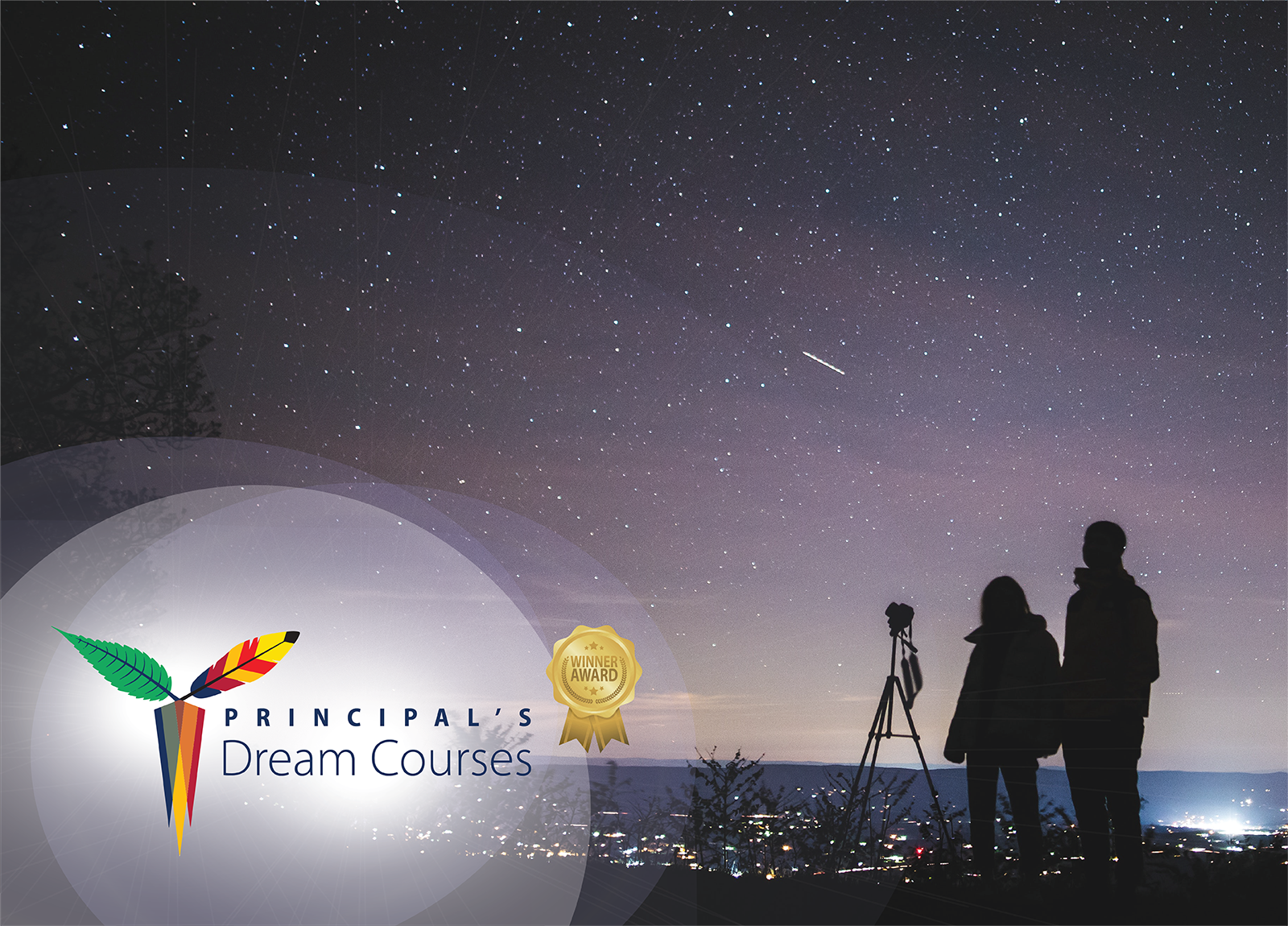
Overview
A non-mathematical introduction to the science of astronomy for non-specialist students. Topics to be covered include the fundamentals of astronomy; and introduction to the tools and techniques of modern observational astronomy; the historical development of our understanding of the Earth, Moon, and Solar System; space exploration of Mars, Jupiter, and other planets; the nature of the Sun; and the origin and uniqueness of our Solar System.
Please note: This course is typically offered in the winter term
Learning Outcomes
Upon successful completion of this course students will be able to:
- Identify and explain the fundamental scientific principles that underlie the dynamical behaviour and structure of the solar system, and apply these principles on all physical scales.
- Explain variable astronomical phenomena visible in the night sky and seasonally, and explore their interpretation in varied cultures and indigenous societies through history and to the modern day.
- Identify the instruments used by astronomers (e.g. specialized telescopes) and, through practical exercises explain their purpose and use in scientific research.
- Evaluate the fragility of life and human society on Earth and the threats to its sustainability represented by global warming, catastrophic impacts, and other astrophysical phenomena.
- Explain modern understandings of the formation and nature of our Solar System and other planetary systems.
- Consider the potential sociological and cultural impacts of the possible detection of extraterrestrial intelligences.
Topics to be covered in the course:
- Astronomy as a science
- Fundamental motions
- Historical development to 1600AD
- Fundamental physical principles
- The message delivered by light
- Astronomical investigation: telescopes and observatories
- Origin, formation and age of the solar system
- Comparative planetology: the dynamic earth
- Planetary atmospheres and global warming
- Leftover in the solar system
- Mars as special target: the search for life
Terms
Winter 2025
Course Dates
–
Delivery Mode
Online

